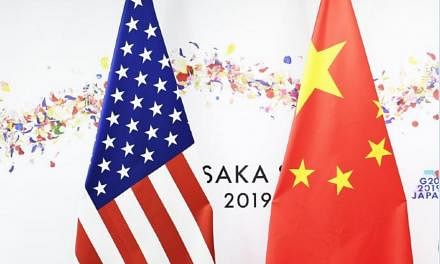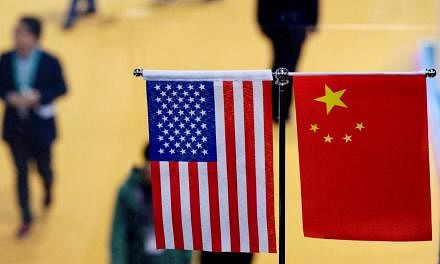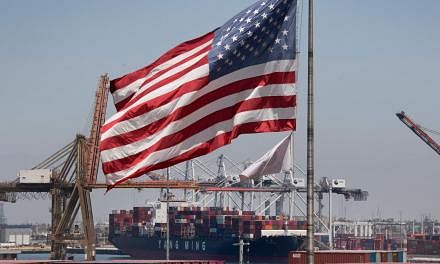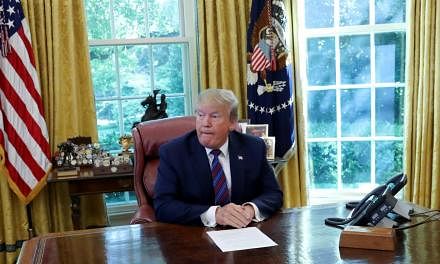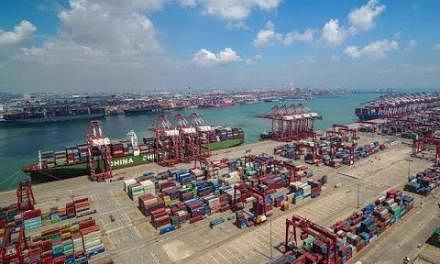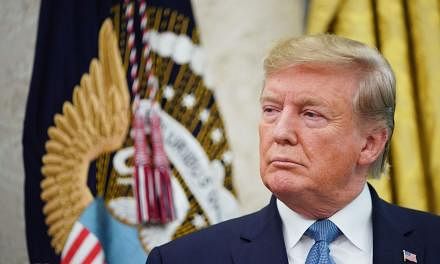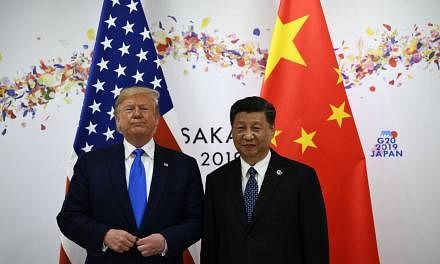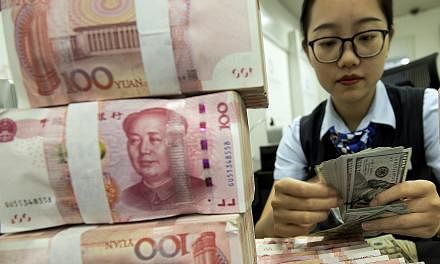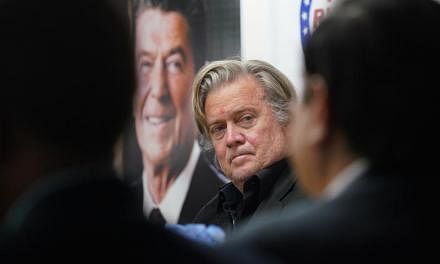HONG KONG/BEIJING (REUTERS, AFP) - China is ready to use rare earths to strike back in a trade war with the United States, Chinese newspapers warned on Wednesday (May 29) in strongly worded commentaries on a move that would escalate tensions between the world's two largest economies.
The warning is the latest salvo in a dispute that has intensified since President Donald Trump ramped up tariffs against China and moved to blacklist telecom giant Huawei earlier this month, while trade talks have apparently stalled.
In a commentary headlined "United States, don't underestimate China's ability to strike back", the official People's Daily noted the United States' "uncomfortable"dependence on rare earths from China.
"Will rare earths become a counter weapon for China to hit back against the pressure the United States has put on for no reason at all? The answer is no mystery," it said.
"Undoubtedly, the US side wants to use the products made by China's exported rare earths to counter and suppress China's development. The Chinese people will never accept this!" the ruling Communist Party newspaper added.
"We advise the US side not to underestimate the Chinese side's ability to safeguard its development rights and interests. Don't say we didn't warn you!"
The expression "don't say we didn't warn you" is generally only used by official Chinese media to warn rivals over major areas of disagreement, for example during a border dispute with India in 2017 and in 1978 before China invaded Vietnam.
In its own editorial on Wednesday, sister paper the Global Times said an export ban on rare earths "is a powerful weapon if used in the China-U.S. trade war." "Nevertheless, China will mainly use it for defence," it added, noting that while China might incur losses from a ban on exports, the United States would suffer more.
The paper's editor had said on Twitter late on Tuesday that Beijing was "seriously considering" restricting rare earth exports to the United States.
Beijing had already dropped a big hint that rare earths could be in the firing line by showing images last week of President Xi Jinping visiting a rare earths factory in Ganzhou, central China.
An unnamed official from the National Development and Reform Commission, China's state planner, issued a cryptic warning late Tuesday.
"You asked whether rare earths will become China's countermeasure against unwarranted suppression from the US. What I can tell you is that if anyone wants to use products made from our rare-earth exports to curb and suppress China's development, I'm sure the people of Ganzhou and across China will not be happy with that," the official said in answers to questions published by state media.
The official said rare-earth resources should "serve domestic needs first" but China is also willing to meet the "legitimate needs of countries around the world".
Shares in rare earth companies surged in the Shanghai and Shenzhen stock markets during Wednesday trading.
China produces more than 95 per cent of the world's rare earths, and the United States relies on China for upwards of 80 per cent of its imports.
Rare earths are 17 elements critical to manufacturing everything from smartphones and televisions to cameras and lightbulbs.
With Huawei facing US bans on obtaining key American-made components for its equipment, Beijing could also hurt US companies in what is shaping up as a battle for who will dominate the future of high-tech.
China has been accused of using its rare earth leverage for political reasons before. Japanese industry sources said it temporarily cut off exports in 2010 as a territorial row flared between the Asian rivals, charges that Beijing denied. But experts say the Japan experience showed that China may not have such strong leverage.
"Even with such apparently favorable circumstances, market power and political leverage proved fleeting and difficult to exploit," according to a 2014 report by the Council on Foreign Relations think tank written by University of Texas professor Eugene Gholz.
The report said China's advantages were already slipping away in 2010 due to normal market behaviour, including increases in non-Chinese production and processing capacity, and innovations that have contributed to reducing demand for some rare earth elements.
Analysts have said China appears apprehensive of targeting the minerals just yet, possibly fearful of hastening a global search for alternative supplies of the commodities.
The Global Times acknowledged that using rare earths as leverage could be risky.
"If China decides to ban rare earths export to the US, it would produce complex effects, including incurring certain losses on China itself," it said. "However, China also clearly knows that the US would suffer greater losses in that situation."

